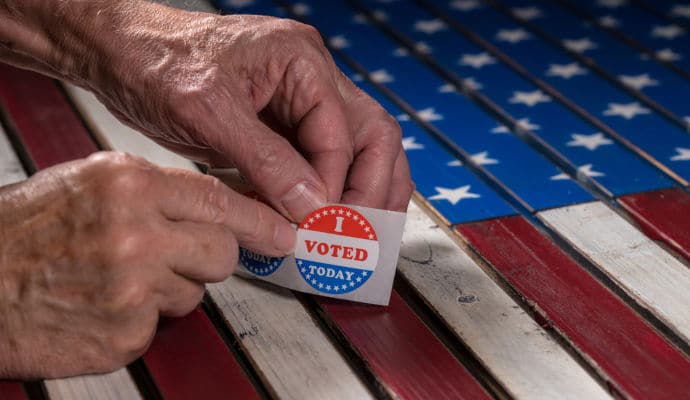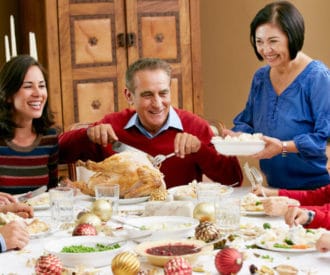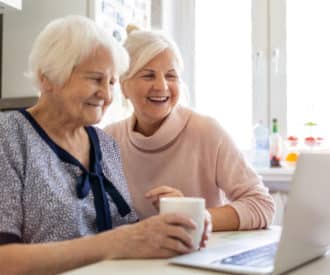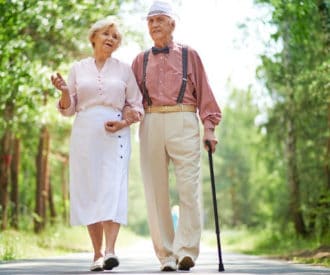
Voting is a right for all American citizens, regardless of age or physical ability. But in-person voting isn’t always feasible. The John A. Hartford Foundation discusses why absentee (mail-in) and early voting is essential for enabling seniors and family caregivers to cast their ballots. (For local voting options & info, visit Vote411.org)
The right to vote is central to the American identity and for family caregivers and the older adults in their care, the right to vote safely is of greatest importance.
Older adults and their caregivers should have every opportunity to fully and safely participate in society, including observing the same traditions and fulfilling the same civic responsibilities as other Americans.
Given the risks posed by Covid-19, celebrating the holidays, visiting with loved ones, and even the act of casting a ballot this election season looks very different in 2020 than in years past.
Updated voting practices enable seniors and caregivers to participate safely
While Covid-19 has contributed to the popularity of absentee (mail-in) ballots and early voting, these are actually a continuation of changes that have been taking place over the last few decades.
Making voting easier, which includes expanding mail-in ballots and early voting, allows more people to vote, including seniors and family caregivers.
Key benefits of absentee (mail-in) and early voting options is that they eliminate the need to physically stand in voting lines for hours or brave the elements in harsh weather.
This is especially important for family caregivers and those in their care who may have health conditions that make it difficult or impossible for them to go to a polling location or wait in line for extended periods.
And in 2020, with 8 out of 10 Covid-19-related deaths occurring among people over age 65, in-person voting during this pandemic can be a serious health risk.
Family caregivers also experience additional challenges, for which mail-in voting can be a huge help.
First, they’re under increased stress to protect their own health and the health of the people they care for from Covid-19 and other contagious illnesses.
Second, caregivers generally face more demands on their time, often juggling work, medical appointments, and daily care tasks.
These factors make it especially difficult for them to vote in a specific location on a specific date or to wait in line for hours in order to cast their ballot.
Voting is a right and responsibility for all citizens
Voting is a civic responsibility that is linked to many older Americans’ identity and what matters most to them.
Many fought for their right to vote, whether by serving in the U.S. military or by advocating for equality in voting rights.
They see themselves as not just people who can vote, but as voters.
At its core, voting is a fundamental act of autonomy and agency that every older adult and family caregiver has the right to practice.
For America to truly be an age-friendly society where older adults are respected and what matters to them is valued, all civic obligations and responsibilities that are part of the American civic identity must be accessible to them.
This includes preserving and protecting older adults’ and their caregivers’ right to vote.
It is especially relevant in 2020 that Family Caregiver Month is in November – how better to recognize and empower family caregivers than to make sure it is easy, simple, and convenient for them and the people they care for to exercise their rights as American citizens?
With 60 million people and counting already casting their vote, it’s time to make mail-in and early voting widespread and permanent.
Find more information on voting in every state at Vote411.org. Learn more about how caregivers are central to an age-friendly society at johnahartford.org/agefriendly.
Recommended for you:
- Vote411.org – a “one-stop-shop” for nonpartisan election-related information with both general and state-specific info
- Tips for Seniors and Caregivers to Safely Resume Activities in the “New Normal” of Coronavirus
- 6 Festive Fall Activities for Seniors
Guest contributor: Rani Snyder, MPA is vice president of program at The John A. Hartford Foundation. She works to create opportunities to improve the health of older adults through increased access to quality health care, enhanced health care delivery, improved medical education, collaborative partnerships, and expanded nursing and caregiver training.
This article wasn’t sponsored and doesn’t contain affiliate links. For more information, see How We Make Money.
[optin-monster slug=”yxbytm35zhsdfopnw7qk”][optin-monster slug=”jvhyplxmb4umsjazxecn”]




